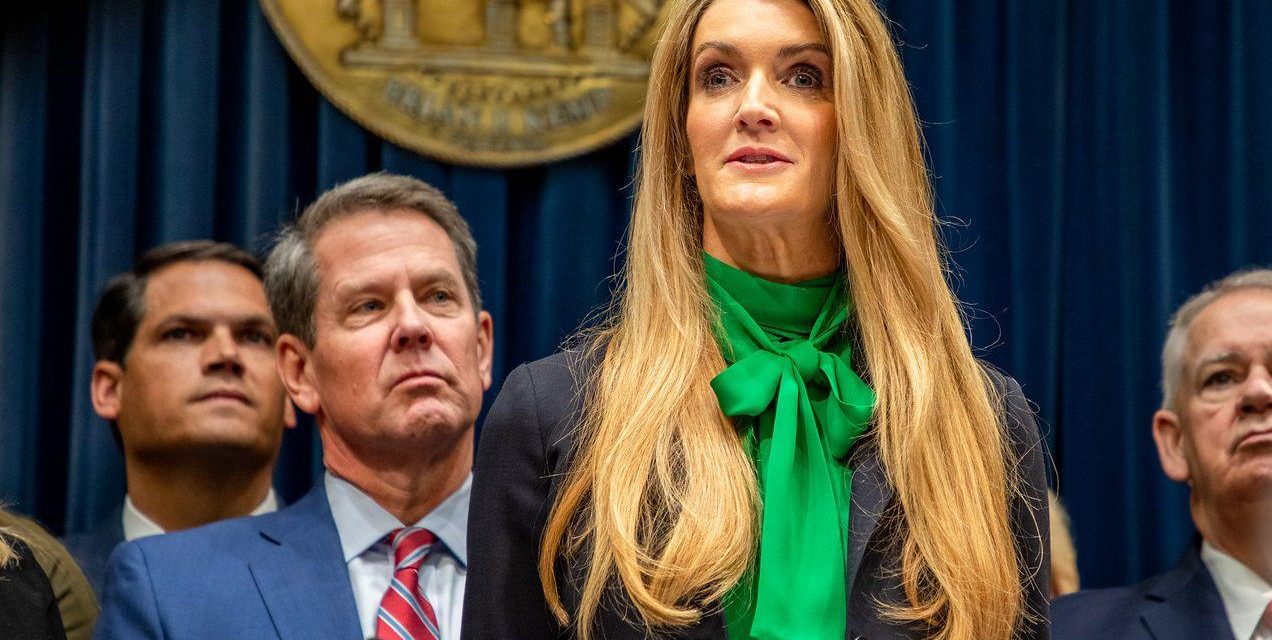Image Credits: Office of Gov. Brian Kemp.
Matt Taibbi, the Rolling Stone journalist turned Substack entrepreneur, had an immediate post-election take on the 2020 presidential election: Donald Trump may have lost but he provided gave the GOP a roadmap to become the working man’s party. Citing both dubious exit polls and actual precinct data, Taibbi argued that Trump had overperformed with blacks, Latinos, and even the LGBTQ community, and he approvingly quoted a tweet by Republican Senator Josh Hawley of Missouri, saying, “We are a working class party now. That’s the future.”
We are a working class party now. That’s the future
— Josh Hawley (@HawleyMO) November 4, 2020
Whether or not this is solid analysis, Donald Trump’s legislative legacy wasn’t populist. It was conventionally Republican. Consider the provision in his 2017 tax bill that incentivizes investment-fund and family-office managers to buy private airplanes. Accounting Today explains such aircraft, “avoid both what originally would have been a capital gains tax bill on their carried interest, and what would have been ordinary taxes on their management fees.”
This provision was eagerly seized upon by former asset management executive, Republican Senator Kelly Loeffler of Georgia, who rushed out and bought a 2010 Bombardier Challenger 300 at an estimated cost of $10 million. The aircraft became an issue in her primary against Trump ally and former Rep. Doug Collins who attacked her as a moderate and idle rich.
The private jet exploit is a workaround to avoid new caps on deducting business losses, a section of Trump’s tax bill that the Joint Committee on Taxation laughably argued would generate $150 billion in revenue over the next ten years. The reality is quite different, as people like Loeffler now pay fewer taxes and get a free plane in the bargain.
Collins’s attack on Loeffler didn’t work, of course. He won only 20 percent of the vote in Georgia’s unique all-party primary. Loeffler received 26 percent and qualified for a January 5 runoff election against Democrat Raphael Warnock, the pastor of Martin Luther King Jr.’s Ebenezer Baptist Church in Atlanta who came in first place with 33 percent.
There’s actually nothing working class about Loeffler. She was appointed by Republican Gov. Brian Kemp in December 2019 to replace Sen. Johnny Isakson who retired mid-term. The populist right furiously opposed Kemp’s choice of Loeffler, strongly preferring Collins, an opinion vocally shared by Trump who was still complaining about the decision in April. Yet, Kemp believed Loeffler was a better choice to defend the seat, arguing as Politico reported, that she’d “help the party appeal to suburban women who’ve been abandoning the GOP in droves since Trump’s election.” Her immense personal wealth and willingness to self-fund her campaign were also an important considerations for the governor.
It hasn’t worked that way so far. In the other Georgia Senate race, incumbent Republican David Perdue won 2,457,778 votes–a 49.7 percent plurality of the vote and 208,486 more votes than Loeffler and Collins received combined. Moreover, Loeffler didn’t fare well in the Atlanta suburbs, pulling only 30 percent in Fayette County, and getting 25 and 22 percent in Cobb and Gwinnett counties, respectively.
Her disappointing performance isn’t a surprise. She was embroiled in controversy not long after she was sworn in as senator in January. On April 6, the Atlanta Journal-Constitution reported that Loeffler had used insider knowledge on the COVID-19 outbreak to sell shares in companies that stood to lose from a pandemic and buy shares in companies that stood to gain. The trades began on January 24, the same day Loeffler received a private briefing on the coronavirus as a member of the Senate Health Labor Education & Pensions Committee.
But if Loeffler, whose husband Jeffrey Sprecher is the chairman of the New York Stock Exchange, specializes in purchasing millions in equities and has a private plane, that doesn’t mean she can’t pretend to be a populist. Squeezed by a challenge from Collins on her flank, she began running an advertisement claiming she is “more conservative than Attila the Hun” and, as the Associated Press reported, boasted that she had the endorsement of QAnon congressional candidate and soon-to-be congresswoman Marjorie Taylor Greene.
Republican Sen. Kelly Loeffler stepped out of a Humvee on a foggy morning in northwest Georgia wearing an American flag trucker hat to accept the endorsement of a congressional candidate who has expressed support for baseless QAnon conspiracy theories and made disparaging comments about Black people, Muslims and Jews.
Loeffler smiled and nodded as Marjorie Taylor Greene praised her as “the most conservative Republican” running in Georgia’s multi-candidate special election for the U.S. Senate seat Loeffler was appointed to 10 months ago.
“What impressed me with Kelly is I found out that she believes a lot of the same things that I believe,” Greene said at the Oct. 15 event.
It’s unclear whether Loeffler will convince a majority of Georgians to elect her, but her panders to the right didn’t inspire suburban women and won’t be of much help in winning over undecided voters in the middle. The outcome will tell us a lot about the future of the Republican Party. Will it be a party for QAnon supporters or a party for asset management executives who fly around in private jets pretending to be QAnon supporters?







